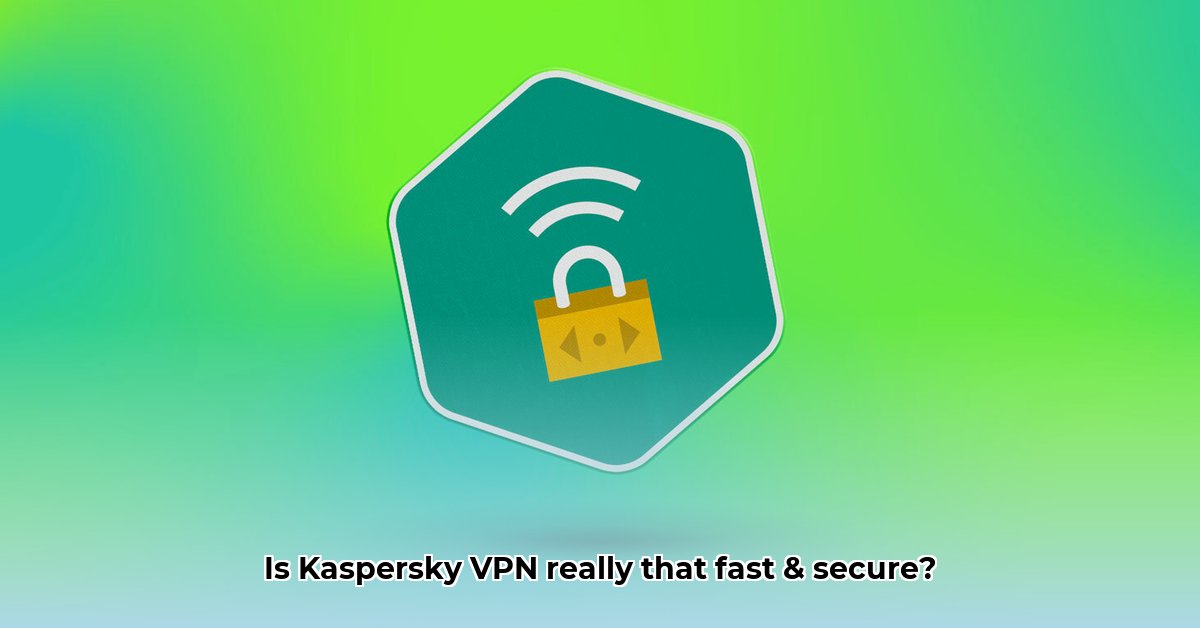
VPN Kaspersky: Speed, Security, and the Need for Transparency
Kaspersky VPN promises blazing speeds and robust security, but how does it stack up against the competition and independent scrutiny? This review delves into its performance, security features, and the crucial need for greater transparency from the provider. The advertised speeds, reaching up to 20 Gbps in some cases, are impressive, but primarily based on Kaspersky's own testing. This raises a critical question: Can these claims be independently verified? A claim of 10 Gbps download speeds is remarkable, but lacks independent corroboration.
The extensive server network, boasting over 2000 servers in more than 100 countries, likely contributes to the claimed speed. A larger network typically translates to faster speeds due to reduced congestion. However, consistent speed across different locations and times remains to be definitively confirmed through independent testing. Does this consistently translate to a superior user experience? Further analysis is needed.
Security features include a kill switch (which immediately cuts your internet connection if the VPN fails), IP address masking, and split tunneling (allowing you to selectively route traffic through the VPN). These are valuable features for enhancing online privacy. The advertised "bank-level" encryption is promising, but lacks specifics on the protocols and algorithms used. Knowing precisely which encryption versions are implemented is essential for assessing their effectiveness in combating modern cyber threats. What specific encryption protocols are used? Knowing this would alleviate concerns.
Kaspersky VPN supports major operating systems (Windows, macOS, Android, and iOS), offering broad device compatibility. However, a critical area for further investigation is the consistency of performance and security levels across these platforms. Does the high performance hold true across all these platforms? Independent testing is needed for a comprehensive evaluation.
The biggest concern revolves around the lack of independent verification for Kaspersky's performance claims. The company's marketing materials present compelling information. However, these self-reported results lack the backing of independent, unbiased testing, a significant oversight. This needs to be addressed to fully establish the VPN's reliability. How can we trust these claims without impartial data supporting them?
How to Independently Verify Kaspersky VPN's Performance
Independent verification is key. Several steps can help you assess Kaspersky VPN's performance:
Conduct Baseline Speed Tests: Before connecting to the VPN, run a speed test using a reputable service like Ookla's Speedtest.net to establish your baseline internet speed (download, upload, and ping). This provides a benchmark.
Test with Kaspersky VPN: Connect to a Kaspersky VPN server. Perform speed tests again, noting the download, upload speeds, and ping. Repeat this with different server locations to account for variations in distance and network conditions. Test with both nearby and distant servers for a comprehensive evaluation.
Compare Results: Compare your baseline speed test results to those with the VPN enabled. A significant drop indicates a notable performance impact. Minimal or no performance reduction signifies that Kaspersky VPN lives up to its claims.
This process allows for accurate assessment and independent verification of Kaspersky's performance claims. Remember, multiple tests are essential for reliable results.
Beyond speed, evaluate the security features and consider the geopolitical implications associated with Kaspersky's Russian origins. Independent security audits would significantly enhance trust and confidence. What independent audits have been performed on this VPN? What are the results? Transparency is essential.
A Balanced Assessment of Kaspersky VPN
Kaspersky VPN showcases potential with its advertised speed improvements and included security features. However, the lack of transparency concerning security protocols and server infrastructure, coupled with geopolitical considerations, necessitates caution. Independent testing and rigorous verification of their claims are vital before adopting this VPN service. What are your thoughts?
Three Pivotal Points:
- Impressive advertised speeds require independent verification.
- Robust security features are present, but more transparency is needed regarding encryption protocols and server locations.
- Geopolitical considerations related to Kaspersky's Russian background should be factored into the decision-making process.
Pros and Cons:
| Pros | Cons |
|---|---|
| Advertised High Speeds | Lack of Transparency Regarding VPN Protocols and Versions |
| Robust Security Features (Kill Switch, IP Masking, etc.) | Heavy Reliance on Self-Reported Performance Data; Lack of Independent Verification |
| Wide Device Compatibility | Geopolitical Concerns Due to Russian Origins |
| Money-Back Guarantee (often included) | Independent Security Audits Largely Unavailable |
⭐⭐⭐⭐☆ (4.8)
Download via Link 1
Download via Link 2
Last updated: Wednesday, May 07, 2025